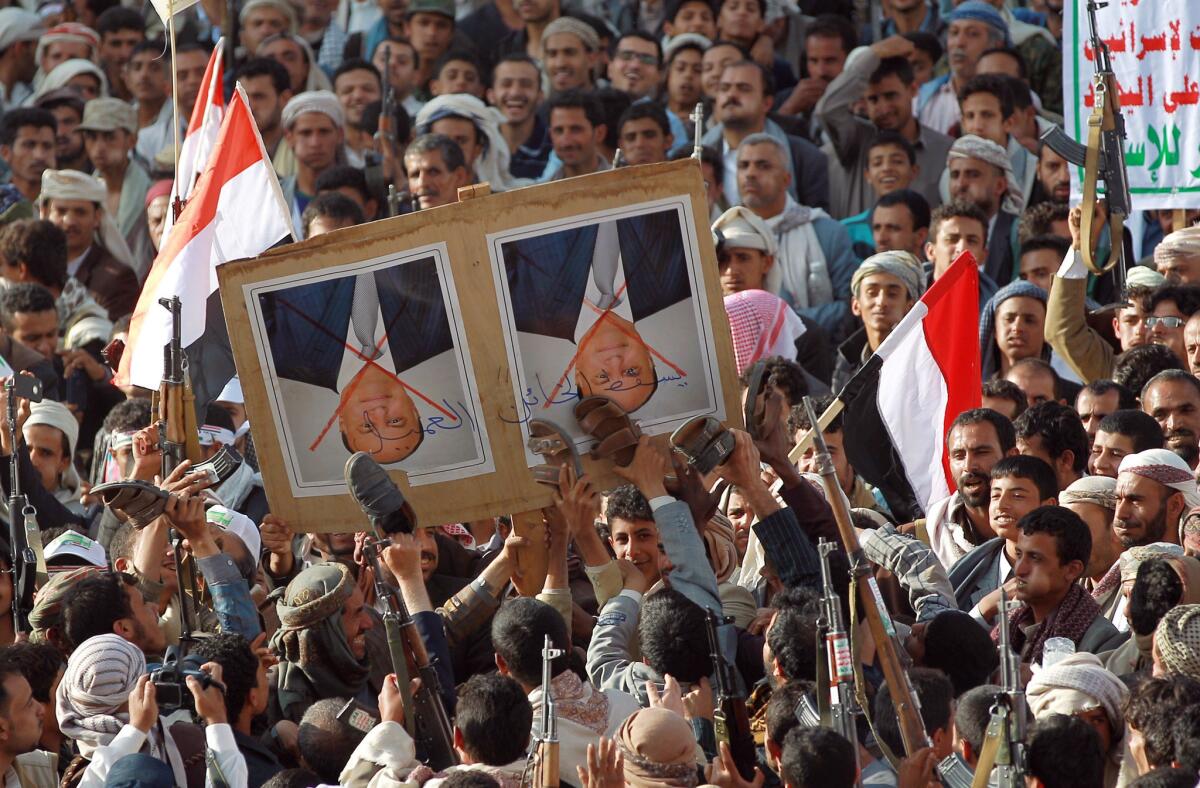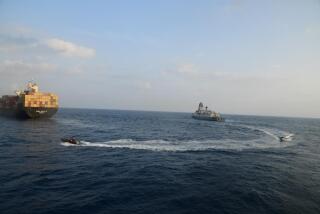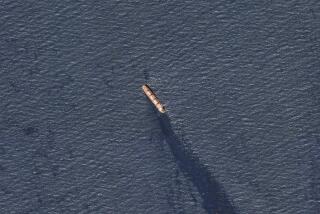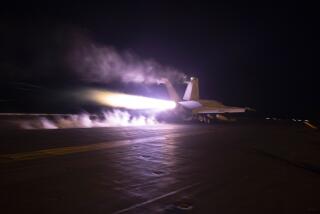Al Qaeda fighters free 300 prisoners in Yemen as rebels invade key port

Seizing an opportunity amid the chaos, Al Qaeda fighters early Thursday staged a prison break in a city in southeastern Yemen, freeing about 300 prisoners thought to include several dozen of their comrades, officials and residents said.
At the same time, the struggle for the strategic port of Aden intensified, with Shiite Muslim rebels surging into several parts of the city, briefly overrunning the palace vacated last week by internationally recognized President Abdu Rabu Mansour Hadi, witnesses said.
The gains came despite a concerted campaign of air and naval strikes by the coalition led by Saudi Arabia, which is trying to crush the rebellion.
A Saudi military spokesman played down the Houthi rebels advances into Aden.
“These things are to be expected, and anyone who knows the tactics of these militias knows that their aim is creating media propaganda rather than actual military success,” Brig. Gen. Ahmed Hassan Asiri told reporters in Riyadh, the Saudi capital.
The prison attack took place in the port of Mukalla, the country’s fifth-largest city, in Hadhramaut province, a stronghold of Al Qaeda’s Yemeni affiliate. The largely Sunni fighters also looted the local branch of the Central Bank, security officials said, and set up roadblocks across the city.
The episode could point to a dangerous new phase in the battle between the Houthi insurgents and the Saudi-led coalition. Analysts had warned that armed groups such as Al Qaeda in the Arabian Peninsula or militants professing loyalty to Islamic State would probably seek to capitalize on the disorder generated by the fighting.
The Houthis’ offensive started last year, but the Saudi response came when the insurgents began marching on Aden, which had been Hadi’s final stronghold before he fled on March 25. The campaign of airstrikes began the next day.
In Washington, Saudi Arabia’s top diplomat in the U.S. said Thursday that the airstrikes had destroyed large numbers of heavy weapons, ballistic missiles and military aircraft that had fallen into the hands of rebels.
The Saudi-led offensive has also grounded flights to Yemen and blockaded maritime ports to stop the flow of supplies to Houthi forces from Iran, Ambassador Adel Jubeir said in response to written questions from reporters on Capitol Hill. “We are much less worried about the Houthis taking over Yemen than we were before the operation started.”
The Houthis are aligned with Shiite Iran and with the country’s former strongman, Ali Abdullah Saleh, who was deposed in 2012 but maintained considerable power as well as a grip on many elements of the country’s military. These military units, many of them elite forces, have helped the Houthis cement their gains since they seized the capital, Sana, last year.
The tumult in Yemen has derailed a U.S. campaign of drone strikes against Al Qaeda in the Arabian Peninsula. It is considered one of the terrorist group’s most active and dangerous franchises.
The fighting has also heightened regional sectarian rivalries, with Iran denouncing the role of Saudi Arabia, the Persian Gulf’s main Sunni power. Saudi Arabia and its Sunni allies have been alarmed by U.S.-led efforts to strike a nuclear accord with Tehran, and by other Iranian muscle-flexing in conflicts including the civil war in Syria.
Special correspondent Al-Alayaa reported from Sana and Times staff writer King from Cairo. Staff writer Brian Bennett in Washington and special correspondent Amro Hassan in Berlin contributed to this report.
Follow @laurakingLAT on Twitter for news out of the Middle East
More to Read
Start your day right
Sign up for Essential California for news, features and recommendations from the L.A. Times and beyond in your inbox six days a week.
You may occasionally receive promotional content from the Los Angeles Times.






